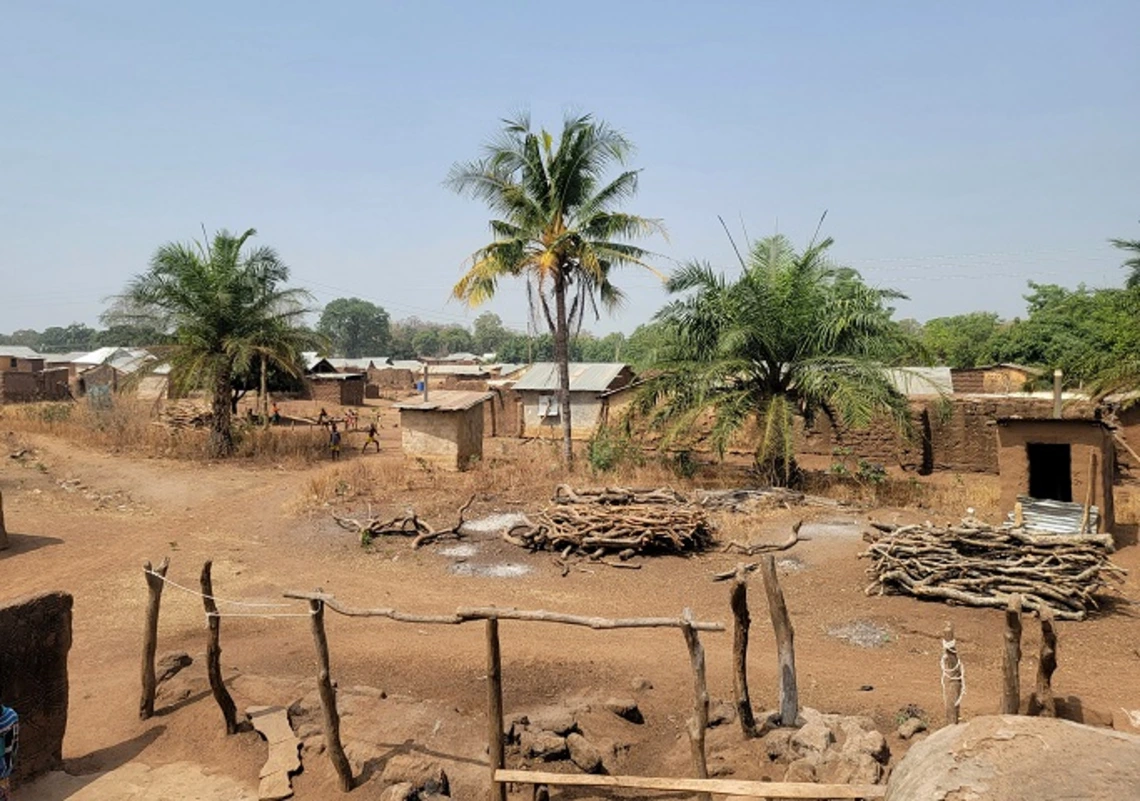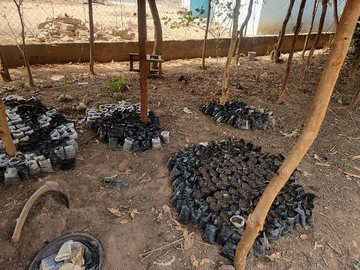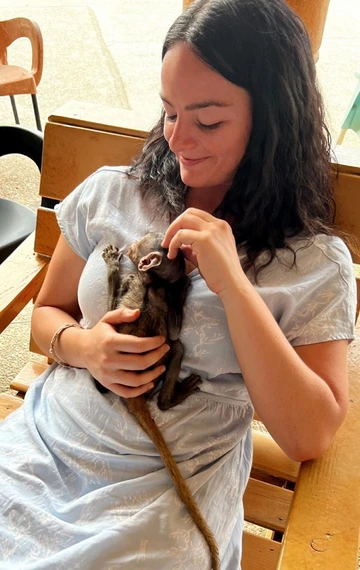Blog Series: Reconnecting with Ancestral Heritage in the Savannah Region of Ghana

Village outside Sawla, northern Ghana, where the internship took place.
This article is part of a series of blogposts by UArizona students who participated in an internship focused on cultural preservation in northern Ghana in the spring semester 2023, sponsored by the Human Rights Practice Program and the World Institute of Africa Culture and Traditions (WIACT). The students received crucial financial support from the Resilience Internships and Student Experiences (RISE) Program of the Arizona Institute for Reslience.
by Kayla Mitchell
I never imagined that I would participate in an internship involving cultural preservation in the Savannah region of Ghana when I applied to the HRTS program at the University of Arizona. I have traveled to many countries and I am a previous Peace Corps Volunteer who served in Uganda as an English Literacy Specialist. However, I was fortunate enough to be selected for an Intern position with the World Institute of Africa Culture and Traditions (WIACT) in Sawla, Ghana.

The tree nursery at the WIACT office.
Capturing Savannah's diverse culture has been a daily adventure not only in photographs, but in the sights, colors, smells, sounds, working, and doing my small part surrounded by such appreciative and gracious people. WIACT's mission is to preserve their cultural heritage, staying connected with their ancestors in language and traditions in the Savannah region and beyond. The organization also includes the preservation of native plants, trees, music, historical palaces, and more. WIACT is involved by spreading awareness and teaching about the rich heritage embedded deep in the Savannah region before it is lost.

Kayla with an orphaned baby monkey that she looked after for 12 days in Sawla.
The experiences have been so memorable. In the first few days we attended the late Chief’s burial celebration ceremony in Damongo. We traveled to Mole National Park which is rich in flora and fauna, with a large population of elephants and other species, and the largest protected area in Ghana. I have assisted in creating an ESL packet for the local Fulani’s in Sawla and I've learned basic phrases in Wala and Gonja. I spent a day getting to know a lovely local family and observe what they do on a daily basis. We visited Nyane village where we saw the most interesting historical compound; an entire community lived under one roof and accessed their home using ladders called a 'touch house'. It was also an honor to have met the Sawla Wura (Chief of Sawla). We took a boat ride along the border of Ghana and Cote d’Ivoire on the White River with the Chief. We attended a captivating traditional music and dance performance; the instruments included were the wooden xylophone and drums. I’ve also been assisting in planting native seeds in WIACT’s nursery. We have been wonderfully busy and the work has been rewarding.
Market day occurs every 5 days in Sawla. People congregate from nearby towns and villages to sell their produce and/or goods. They are known for their shea butter. Yes, I've packed some to take home! When traveling to other countries it has always been so captivating to visit the local market and maneuver your way through the people and booths. You can learn a lot, appreciate their culture, their trades, and their hard work, while viewing the variety of products being sold. The hospitality and kindness of the people of Sawla have made me feel so welcome. I appreciate Professor Mette Brogden from the Human Rights Practice Program for providing the information about the internship and selecting me. I also appreciate Rashid Iddrisu, WIACT Founder/CEO, for being an incredible host and for sharing and teaching the traditional ways of the Savannah region. The opportunity to participate in the HRTS internship has been a privilege and the experiences will carry through the rest of my life. I am forever grateful.
See also:
The Membership of Togetherness in Ghana, by Jessica Nwafor

